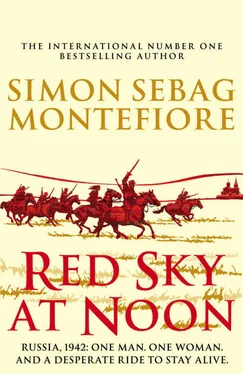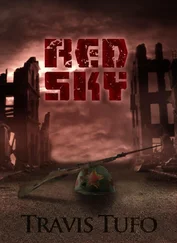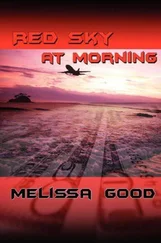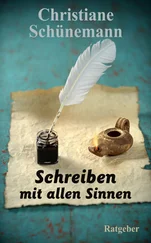Melishko dismounted and looked inside the smoking barn. Inside were the blackened forms of men and women, roasted with their hands raised and white teeth showing through wide-open mouths, wizened as small as children.
He looked back at Prishchepa and Benya, still on horseback in the little street.
‘What happened here?’ Melishko said as the peasant was brought to him. ‘What happened, Cossack?’
Smiley gave the peasant a shove and he groaned, clutching at his ruined ankle. ‘Mandryka’s Schuma police came here,’ he said.
‘Where’s the rest of the village?’
Smiley hit him with his rifle butt and the peasant whimpered, ‘Don’t hurt me again. Don’t hurt me.’
Melishko ordered a half-burnt chair to be brought out so the peasant could sit.
‘Are you working with the traitor Mandryka?’ Melishko asked.
‘No, but we’re doing some spring cleaning for him.’
‘What’s that uniform?’
‘His Majesty’s Ataman Lifeguards Regiment. I served the Tsar in the Great War.’
‘And fought for the Whites against the Communists?’
The peasant nodded.
‘Where’s everyone else?’
The peasant looked side to side as if playing the fool, like a child in a play. ‘Some have joined Mandryka.’
‘Why are you here?’
‘To check the field. To tidy the barn. To see the sights.’
‘What sights? What field?’
‘The sown field. I’m also looking after the guests in the barn.’ The rosy-cheeked old peasant grinned, opening his gaping well of a mouth. Benya noticed just the black stumps of teeth.
Melishko looked over the man’s shoulder at Panka who made a ‘he’s insane’ gesture.
‘Who are the guests?’
‘They were the strangers amongst us. They came from the cities…’
‘And what do you do to them?’
The peasant looked right into Benya’s eyes. ‘You’re one of them,’ he said, pointing at him. ‘That’s one of them! A Christ-killer. Right amongst you!’
Benya felt the primitive impudence of evil, and shivered.
‘Answer me,’ insisted Melishko, still puffing on his cigarette. The smell of burning and of something infinitely more terrible was becoming unbearable and the men tied kerchiefs around their faces.
The peasant licked his lips and opened his mouth in what passed for a smile. ‘We make them welcome,’ he said.
To Benya this mouth was the sinkhole of death.
‘A devil,’ Panka murmured. ‘Possessed by the midsummer moon.’
‘One more thing,’ asked the general. ‘What’s the traitor Mandryka’s next task?’
‘It’s special work. Those strangers are running from the west, Odessa and Kishnev, and seeking sanctuary in the villages. That’s where he picks them up. So we can welcome them in our special way.’ Again the open gape.
Melishko nodded, rubbing his moustache with his hand. ‘So this is Mandryka’s work. See this, Cossacks! Here is our mission. Here is how we win our freedom back!’ He turned and mounted Elephant. ‘We ride on.’
Ganakovich still stood over the peasant.
‘Shall we…?’ said Smiley.
Benya rode on, waiting for the shot, not flinching when it came.
The field outside the village had been ploughed with rags but when they got closer, Benya saw a white hand first, a perfect white hand, and then a bare foot and then a collage of gabardine and linen and then more flesh, a complete face. Silver Socks reared at the sight, snorting, spooked. The rich black earth had been freshly turned but now they were close Benya could see that it scarcely covered the bodies that lay in rows, intertwined, half-naked, indecently twisted. He and the men stared; their horses champed, their ears flattened back, the whites of their eyes showing – and a host of black wings beat the air before the birds returned and hopped closer and closer.
Melishko dismounted again, sighing with the effort, and gestured to Benya to do the same. ‘I was in Spain, like you, and we saw things there. They shot the priests and nuns in the village square. But nothing like this. You must live to witness this, you before all the others,’ he said gruffly.
‘Why me?’
‘You’re our only writer. Who are they? Can’t you see? Look more closely at these people.’ Melishko knelt down and pushed aside the soil. The field seemed to emanate a sugary miasma even though the bodies were so fresh and Benya realized that death smelled of sweet blackberries gone bad. Vultures leaned their crooked necks from the closest boughs and the crows cawed, eyes glittering sharp and yellow as citrines. Benya’s companions had dismounted and were kneeling, brushing aside the earth so they could see the bodies.
Each person had been shot in the back of the head: here was a girl with clear eyes, here a man’s face where a leg should be, here a child as if asleep, all mixed up together with a horrible negligence. Melishko picked up a Soviet identity card, then another. ‘They’re not all from here. Look! They’re all Jews, your people.’
Benya knelt down too, looking at the ID cards and seeing the Jewish names and their home towns: Paltrovich of Nikolaev, Greenbaum of Kherson, Jaffe of Mogilev. They were Jewish refugees, overtaken by the German advance. Frantic suddenly, he threw aside those and picked up more, tossed carelessly around the field. And then he found one – a family from Odessa…
‘My parents lived in Odessa after leaving Galicia,’ he said, his voice cracking. ‘They could be…’
‘Come on, lad,’ said Melishko, hefting him up and steadying him. Benya saw Melishko’s face was exhausted, noticed the dust in the crow’s feet around his eyes. ‘I’ll wager your family are safe somewhere. But wherever they are, the best we can do is meet Mandryka with our sabres drawn.’
Benya wanted to weep as he looked at this field, this Jewish field, sown with Jews, scarcely buried. He’d often wondered – what was life for? For joy – and for this just war. How could he have done anything else but fight these monsters? He felt his own frailty beside these Nazi fanatics who were winning the war, but he could still do his bit. Today. That was what this mission was all about.
He heard shrieking and turned. The little girl on Kapto’s horse was crying and pointing and the doctor was covering her eyes. Maybe this was where her parents were, whence she had escaped out of the earth – or somewhere like this. The Cossacks were crossing themselves. None of them had ever seen anything like this before.
Panka shook his head and rubbed his whiskers. ‘The wolves have gone mad.’
When the normal order of life is shattered, thought Benya as he rode on, no one can predict where those fragments will fly, whose life will be spared, whose throat they will cut. There was only one certainty: the old world can never be put together again.
They had been riding since 4 a.m., and Mandryka’s village was right ahead of them. The sky was a brightening lavender with white contrails, Benya noticed, and just a smudge of sun so far; this was going to be another beautiful day. The men were drawn up in two companies: orders were whispered; cigarettes put out.
At one point in the early morning, Benya had fallen asleep in the saddle, and when he awoke he had found himself alone with Silver Socks cropping grass at the roadside. He’d turned and just behind him were two strange horsemen. For a moment, he’d panicked and reached for his PPSh. ‘You want a Daddy?’ Panka had asked, handing over the weapon just after the first charge. My ‘Pe-pe-sh’, the soldiers called it, my Papasha – Daddy! Now he levelled it at the riders, ready to shoot.
Then he saw the fluorescent moons of the little girl’s eyes. She was riding in front of Dr Kapto, his arm around her belly, so she would not fall, his curved and symmetrical face close to her hair. Tonya rode next to him, and perhaps Benya had scared them because Kapto was pointing his Parabellum right back at him.
Читать дальше












